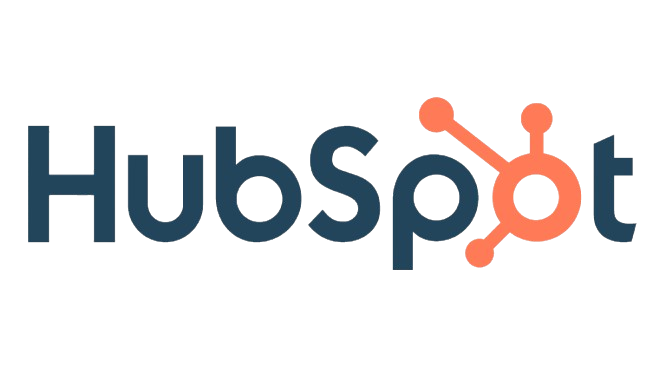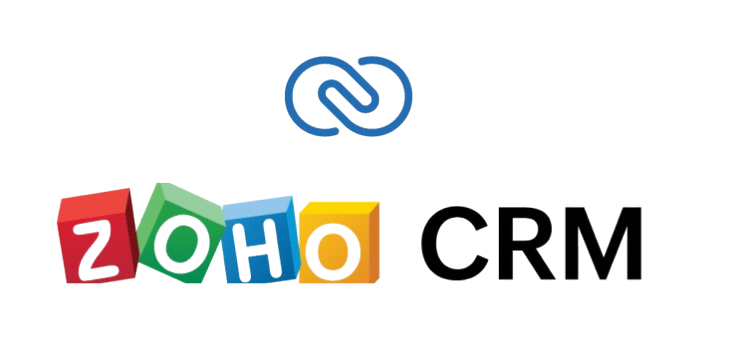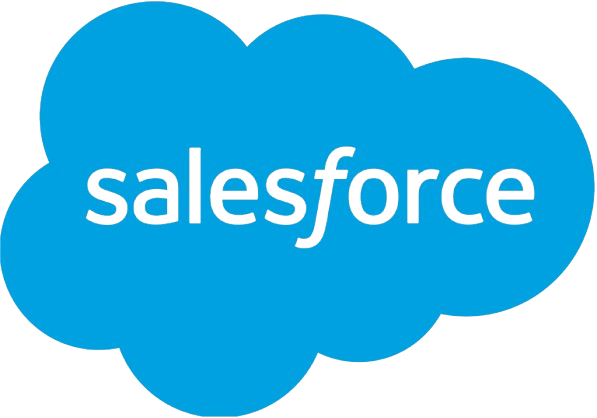
Running a small business comes with its fair share of challenges: limited resources, growing customer demands, and juggling multiple responsibilities. Amidst this, staying organized and building meaningful relationships with customers can often feel overwhelming. This is where Customer Relationship Management, or CRM, tools come into play.
It is not a mere software but rather a transformational solution to organize your operations, build better communication, and concentrate more on what is more important: the customer. Centralizing all customer-related interactions, it avails you of an intelligent look at the pipeline, sales, and marketing efforts towards growing your enterprise or organization for every need. A proper CRM has been crucial between stagnation and growth in these tight economic situations where the owner needs each and every lead in business.
In this blog, we’ll explore five CRM tools that are not only affordable but also packed with features tailored to meet the unique challenges faced by small business owners. Each of these tools has been carefully selected for its ability to deliver value, improve efficiency, and help businesses scale without breaking the bank.
Why CRM Tools Are Indispensable for Small Businesses
For small businesses, every customer interaction has significant weight, often sealing their future growth and sustainability. However, without a centralized system in place for these interactions, errors occur in the process; hence, opportunities could be overlooked and may lead to poor customer experiences. CRM is the source of truth for customer data, ensuring that it’s easy to track customer preferences, past interactions, and sales progress.
More than that, CRMs can even enable enterprises to identify high-value customers, automate routine tasks like follow-ups, and make data-driven decisions. These tools foster collaboration in small teams by keeping them all aligned-be it a sales representative responding to a query or a marketing executive launching a targeted campaign. A properly chosen CRM can finally turn a small business into a customer-centric powerhouse by improving both retention and acquisition.
1. HubSpot CRM: A Comprehensive Free Solution
 To most business people, the immediate option for choosing a strong but affordable CRM would be HubSpot CRM. The free version of HubSpot CRM comes fully packed with many features, like managing customer data and tracking deals to improve communication without any hefty costs. Its intuitive design by the platform means that even a business owner who has never used a computer will also manage to get their customer relationship running.
To most business people, the immediate option for choosing a strong but affordable CRM would be HubSpot CRM. The free version of HubSpot CRM comes fully packed with many features, like managing customer data and tracking deals to improve communication without any hefty costs. Its intuitive design by the platform means that even a business owner who has never used a computer will also manage to get their customer relationship running.
Detailed Features and Benefits
- Contact Management: Store unlimited contacts, track interactions, and see detailed customer profiles in one convenient place.
- Email Tracking and Integration: Send emails from within the CRM; find out if someone has opened or clicked the links in them and do timely follow-ups.
- Alignment of Marketing and Sales: Free email campaign functionality, creation of forms, management of social media-all are combined in one in HubSpot to align your marketing and sales.
The best thing about HubSpot CRM is that it’s highly scalable. Small businesses can start off with the free version and upgrade to paid plans as their needs evolve, opening up advanced features such as automation, analytics, and team collaboration tools.
2. Zoho CRM: Affordable and Packed with Features
 Zoho CRM is the all-in-one, cost-effective solution that comes loaded with all the features required to manage a small business and grows along with it. With its AI-driven capabilities and multi-channel communication in Zoho CRM, businesses can step ahead of their competition without denting the company wallet.
Zoho CRM is the all-in-one, cost-effective solution that comes loaded with all the features required to manage a small business and grows along with it. With its AI-driven capabilities and multi-channel communication in Zoho CRM, businesses can step ahead of their competition without denting the company wallet.
Detailed Features and Benefits:
- AI-Powered Insights: Predict leads, analyze customer sentiment, and automate tasks using the in-built AI assistant, Zia, so businesses can concentrate on making strategic decisions.
- Multichannel Communications: Manage customer communications with email, phones, social media, and even live chat, all in one place, so no lead is ever overlooked.
- Customizable Workflows: Adapt Zoho CRM with your unique business processes by customizing modules, creating automation rules, and reporting with dashboards.
It also easily integrates with other Zoho applications, such as Zoho Books for accounting and Zoho Campaigns for email marketing, making it a complete ecosystem for small businesses.
3. Salesforce Essentials: Enterprise Power for Small Teams
 Salesforce Essentials takes all the power of Salesforce and repackages it into a watered-down variety, more suitable for small businesses. It’s going to take some time to learn, but well worth the capabilities. It gives them a level of sophistication where they can punch above their weight.
Salesforce Essentials takes all the power of Salesforce and repackages it into a watered-down variety, more suitable for small businesses. It’s going to take some time to learn, but well worth the capabilities. It gives them a level of sophistication where they can punch above their weight.
Detailed Features and Benefits:
- Comprehensive Customer Support: Salesforce Essentials provides the capability to manage customer support tickets, live chat, and knowledge bases for great customer service.
- Data-Driven to Decision: This platform provides in-depth insights into sales trends, customer preferences, and team performances, thus helping to drive informed decisions.
- Mobile Accessibility: A mobile-first design allows business owners and sales teams to manage their pipelines, update records, and access data on the go.
It also integrates with the Salesforce AppExchange, where hundreds of integrations and add-ons are available to further extend the capabilities of the platform.
4. Pipedrive: Streamlined Sales Pipeline Management

For small businesses focused primarily on improving their sales processes, Pipedrive is a standout option. Its visual and user-friendly interface simplifies sales pipeline management, ensuring that leads are nurtured efficiently and deals are closed faster.
Detailed Features and Advantages:
- Visual Pipeline Management: It will allow a business to easily create, personalize, and update its sales pipeline through a drag-and-drop interface.
- Automation Tools: Automate follow-up activities, schedule emails, and deal updates, and use your time on strategic activities.
- AI-powered insights with Pipedrive’s AI assistant provide actionable tips to improve sales performance, helping one achieve their targets easily.
Since Pipedrive focuses on sales, it makes it perfect for businesses looking to improve their conversion rate and boost their revenue without being overwhelmed by unnecessary features.
5.Monday Sales CRM: Flexible and Highly Visual

Monday Sales CRM combines the functionality of a CRM with the adaptability of a project management tool. Its visually appealing interface and customizable workflows make it a great choice for small businesses with diverse operational needs.
Detailed Features and Benefits:
- Custom Workflows: Design workflows that suit your business, whether it’s for managing leads, tracking projects, or collaborating with teams.
- Centralized Communication: Bring team discussions, file sharing, and task management into a single platform to eliminate silos.
- Insightful Dashboards: Visualize key metrics such as sales progress, lead status, and team performance to stay on top of your goals.
Monday Sales CRM integrates seamlessly with tools like Slack, Zoom, and Google Workspace, making it a versatile platform for businesses juggling multiple priorities.
How to Choose the Right CRM for Your Business
Choosing the right CRM isn’t just about selecting the most popular tool—it’s about finding one that aligns with your specific needs, budget, and goals. The right CRM for one business might not be suitable for another, so it’s essential to approach this decision thoughtfully. Here are some key factors to consider:
Start by identifying your priorities. Do you need a tool to improve your sales pipeline? Are you looking for better customer support capabilities or tools to enhance marketing campaigns? Knowing your primary objectives will help narrow your options.
CRMs come in a variety of pricing tiers, from free versions to premium plans. While free options like HubSpot CRM are a great starting point, consider whether you might need advanced features down the line and factor that into your budget.
A sophisticated CRM won’t help your business if your team struggles to use it. Look for platforms with intuitive interfaces, training resources, and good customer support to ensure smooth implementation.
As your business grows, your CRM should grow with it. Choose a platform that offers scalable plans and advanced features, so you don’t need to switch systems as your needs evolve.
Your CRM should seamlessly integrate with the tools you already use, such as accounting software, email marketing platforms, or e-commerce systems. This ensures efficiency and reduces the need for manual data entry.
Having access to responsive customer support or an active user community can be invaluable, especially when you’re just starting with a new platform.
Taking the time to evaluate these factors will not only save you money but also ensure that your CRM becomes a valuable asset rather than a burden.
Conclusion
Small businesses thrive on building meaningful connections with their customers, and a CRM serves as the backbone of this process. By organizing customer data, automating repetitive tasks, and providing actionable insights, a CRM empowers business owners to make smarter decisions, boost efficiency, and improve customer satisfaction.
The five tools discussed—HubSpot CRM, Zoho CRM, Salesforce Essentials, Pipedrive, and Monday Sales CRM—offer diverse features that cater to different needs. Whether you’re looking for a free solution to get started, a robust sales-focused platform, or an all-in-one ecosystem, there’s a CRM on this list that can transform your business operations.
